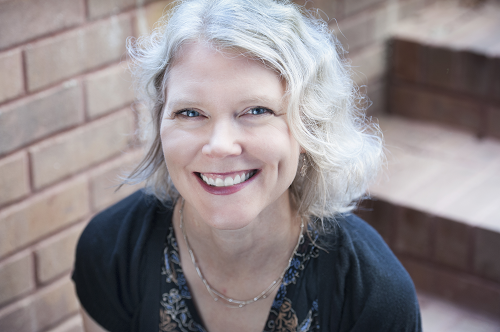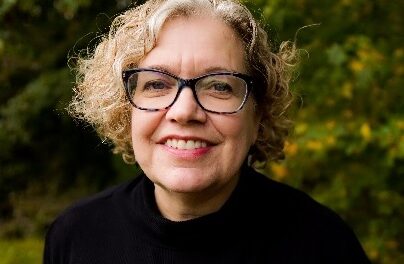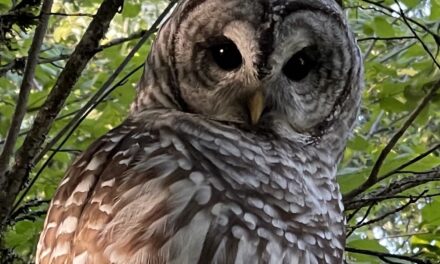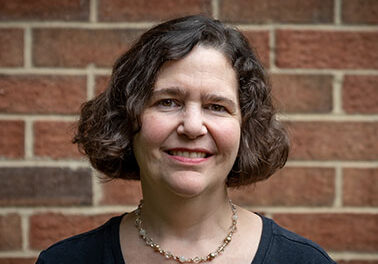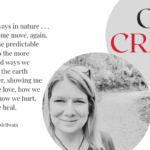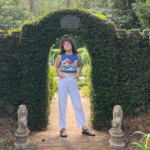Managing Editor Lisa Ampleman: Becky Hagenston’s “Star Girl” feels like a cousin to another piece in our miCRo series, Doris Cheng’s “Earthling,” a story that features a teenager who thinks she might be an extraterrestrial. In Becky Hagenston’s hands, the concern with aliens takes a different turn: The “Star Girl” of the title was mysteriously absent for a week, and a first-person-plural chorus wonders what happened to her. In this “MeToo” moment, readers can imagine darker implications for why she was gone. Hagenston deftly handles the weighty content of the piece, including the ending, as the story’s speakers consider their own need to call out into the darkness for connection, for help.
To hear Becky read her story, click here:
Star Girl
She returned after a week and nobody knew what to say. So we said nothing. We passed secret notes speculating about the little green men, the probes (we muffled our laughter when teachers glared), the experiments, the food. Did aliens eat? She wasn’t thinner, but something about her had changed. We knew she must have a microchip implanted somewhere. Some of us regarded her with jealousy: the girl who had seen swirling galaxies and stars. The girl who had watched Earth grow tiny and vanish: not just its clouds and mountains, but its gym classes, sick mothers, pimples, homework.
She was valedictorian, and in her speech she talked about the value of hard work and family. Nothing about being sucked up into a UFO and tilting through the universe for an entire week. Nothing about what it was like to be returned to Earth and find herself struggling out of the woods, her arms scratched and her clothes torn, relieved to be home.
Or had she wished to stay? Was that why she wouldn’t talk about what had happened? Maybe she’d fallen in love with a spaceman. They had a space baby. A week passed like thirty years, and then she was beamed back down to the planet of her childhood, a land she didn’t belong to anymore.
She returned from college in the summer, then less often. We’d see her at the mall with a man, then a little girl, then pushing her mother in a wheelchair. We began to forget why we’d feared and envied her, and then someone would say: The UFO! And we’d try to remember if she had ever actually said anything about spaceships or aliens, or the tiny Earth disappearing far below her, or why she’d gone into the woods alone, or why she was chosen and we were not.
We married, had children, divorced or didn’t. Some of us moved away, but many of us stayed in the town where we’d lived all our lives. Sometimes, late at night—drunk and tired, hopeful or hopeless—we’d drive out to the remaining patch of woods just beyond the town. We parked our cars and wandered into the dark. We gazed up and picked out the North Star, the Big Dipper, and Venus. Most of us knew that when you looked at the sky, you were looking into the past, and those of us who hadn’t learned it from a book could feel it in our hearts: Hadn’t we made out around bonfires once? Hadn’t we danced to mixtapes?
The only lights that swung through the trees came from cars driven by Earthlings just as tired, drunk, hopeful, or hopeless as we were. We’d listen to a distant engine cut off, watch the headlights blink out. Sometimes we heard a great sigh, or a sob. Sometimes, not always, we got up the nerve to call out a greeting across the darkness.
Becky Hagenston’s third story collection, Scavengers, won the Permafrost Prize and was published by University of Alaska Press in 2016. Her work appears in recent issues of Witness and Greensboro Review and is forthcoming in the Oxford American and Ploughshares. She teaches creative writing at Mississippi State University.
For more miCRo pieces, CLICK HERE.

